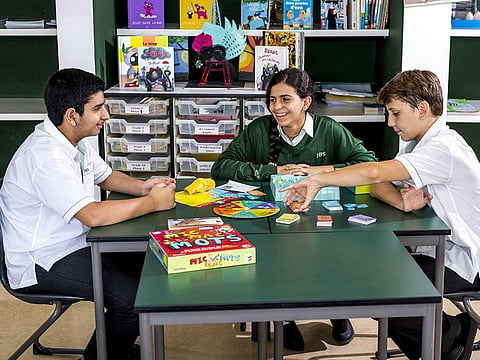Return to centuries-old ethos of teaching virtues in school, Dubai educator says
Jumeira Baccalaureate School calls for return of ‘character education’ front and centre

Dubai: Schools should return to the centuries-old practice of explicitly teaching “character education”, instead of focusing overly on test scores, a Dubai school said.
Jumeira Baccalaureate School (JBS), recently recognised as the first international school outside of the UK to become a ‘Kitemark School of Character’, has been heavily developing character education for the past three years.
While ‘Character and Civility’ is one of the four pillars of the UAE’s recent Moral Education curriculum — and character education and moral education are often seen as one and the same — character education goes back to the days of Plato and Aristotle, said Erika Elkady, Head of Secondary, JBS. Down the centuries, Elkady added, schools shunned this duty and instead relied on student results as a yardstick for their quality of “education”.
‘Obsession with results’
“Schools were always places which educated young people to be morally good people. Unfortunately, the goal of education has shifted during the past decades and we now see an overemphasis on student results, league tables, and school inspections. It seems that the aim of education — preparing students for a future in which they can flourish and participate in society — is overshadowed by an obsession with student results,” Elkady said.
‘Hidden curriculum’

Can virtue be measured?
However, the “problem” with character education is that it is hard, if not impossible, to measure virtues, Elkady conceded. “We cannot say that someone gets full marks in ‘honesty’ or that one student is more honest than another student. This is not what character education is about. There are some quizzes and surveys which are self-reported measuring tools and therefore not objective.”
‘Happy side effect’
She said the real aim of character education is not to have another subject to assess in teachers’ busy timetables. “Students who learn to do the right thing are happier and thrive. They feel safe and valued in the school, and such an environment helps them to do well academically. So, as a happy side effect of character education we see student achievement increase. However, this is not the primary aim of character education. We want foremost our students to flourish.”







![Social media claims of cancellations dismissed; official updates to be shared through authorised channels. [Illustrative image]](http://media.assettype.com/gulfnews%2F2025-11-15%2Fx2mp12df%2Fexam.jpg?w=320&auto=format%2Ccompress&fit=max)